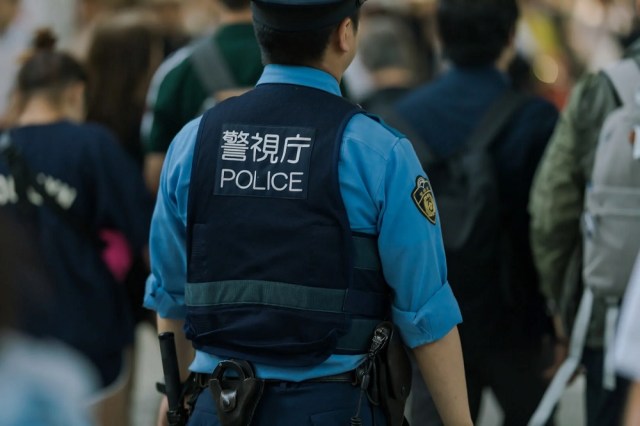
18-year-old arrested on the day he was supposed to fly home, suspected of setting as many as seven fires in one night.
On October 9, an 18-year-old American arrived in Japan with his family for a sightseeing trip. While here, they had, in many ways, a typical tourist itinerary, visiting Sensoji, Tokyo’s most famous Buddhist temple in the Asakusa neighborhood, checking out the otaku district of Akihabara, and even making a side trip out to Tokyo Disneyland.
The family was supposed to head back to the States on October 23, but the young man’s travel plans have now been altered, as on the day of his scheduled departure he was arrested by the Tokyo Metropolitan Police on arson charges.
In the pre-dawn hours of October 21, a series of seven fires broke out in rapid succession in downtown Tokyo’s Chuo and Sumida wards, all within a radius of approximately two kilometers (1.2 miles) in residential areas (the response to the fires can be seen in the above video). One of those fires was set in a trash bin located near the entrance of a condominium building in Nihonbashi Kakigaracho, and investigators have reason to believe the 18-year-old tourist was responsible, and it’s currently this crime that he’s been arrested on charges of.
▼ The condominium’s exterior is shown in the video here.
Considering the proximity to the other six fires and similar methods in which they were set, the police think the 18-year-old is likely responsible for them as well, and he has been detained in Japan while the investigation continues. The suspect has denied the charges, in the sense that he hasn’t admitted culpability, but has stopped short of explicitly saying he didn’t start the fires, saying “I don’t remember.”
While “I don’t remember” is an infamously common defense offered in criminal cases in Japan, the tourist may be in for a rude awakening if he thinks it’s going to function as a get-out-of-jail free phrase for him. For starters, “I don’t remember” is most commonly used as a defense in cases of physical violence, groping, or destruction of property involving kicking, smashing, or other forms of forceful impact. In other words, the defense hinges on sewing seeds of doubt that the actions were willful, suggesting that maybe they were an unintentional case of someone getting carried away or sloppy in their movement. But while it’s one thing to offer the flimsy excuse of “I didn’t mean to break that beer mug” or “I didn’t realize my hand had slipped down to that woman’s posterior,” it’ll be hard for even the most lenient and naive judge to envision a scenario where someone inadvertently started a fire in the early morning hours in a trash container they had no business with in the first place.
▼ Likewise, while “Oh, we went to so many temples that they sort of started to blend together. I can’t remember each and every one” is a phenomenon many tourists experience in Japan, most people have no trouble at all keeping track of exactly which fires they did and didn’t set during their vacation.
There’s also the fact that the Tokyo Metropolitan Police decided to arrest the tourist even as he was, essentially, on his way out of Japan. If the goal was simply to give him a slap on the wrist and deport him, roughly the same result could have been achieved by doing nothing and letting him get on the plane home, after which he’d no longer be posing any danger to anyone in Tokyo or Japan. The timing of the arrest implies that the investigators feel confident they have enough evidence for a conviction, and that prosecutors will seek punishment beyond just a stern frown and an order to leave Japan immediately.
The tourist’s use of “I don’t remember” is particularly unusual, since while it’s a common response to criminal charges in Japan, it’s not a phrase that’s used as often in the U.S. in situations like these. So maybe he’s been keeping up on Japanese crime news while living overseas, which makes one wonder if he’s aware that, though he’d have been tried as a minor just a few years ago, a recent change in Japanese laws means that he’s now a legal adult, and can be tried as such.
Source: Nitele News, FNN Prime Online
Top image: Pakutaso
Insert image: Pakutaso
● Want to hear about SoraNews24’s latest articles as soon as they’re published? Follow us on Facebook and Twitter!